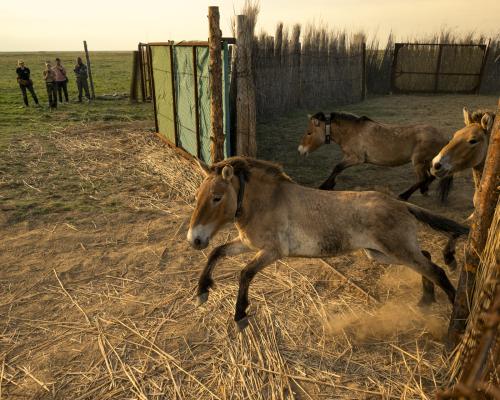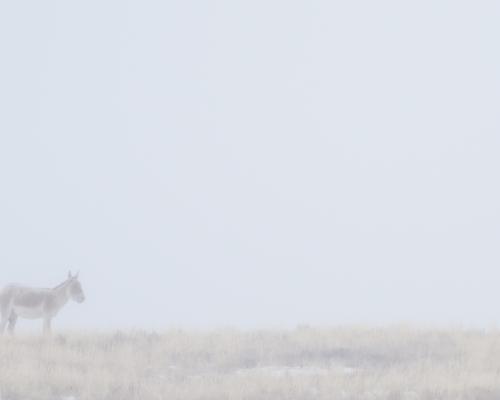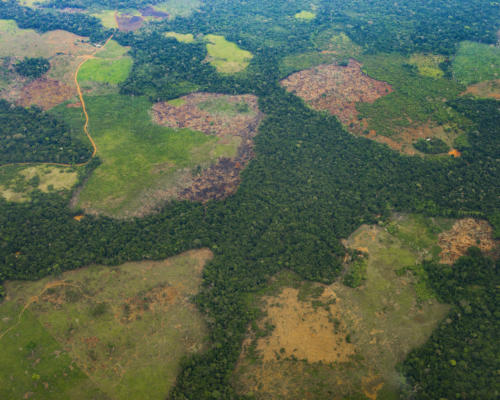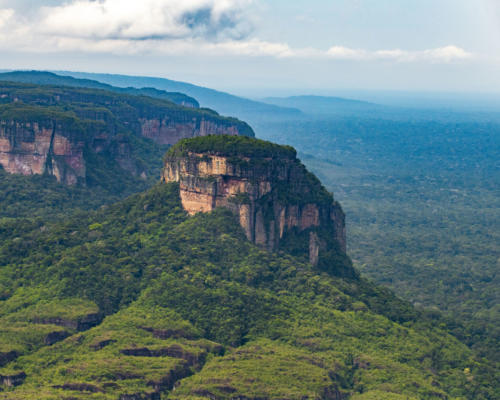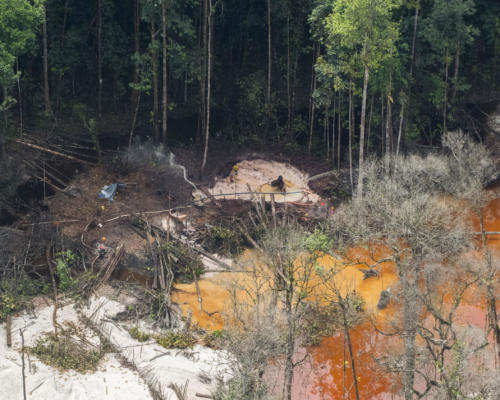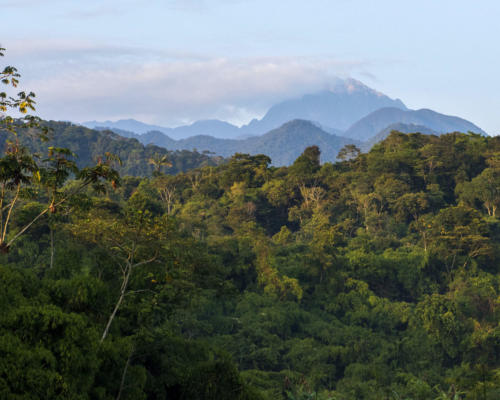Colombia is now the most dangerous country for environmental defenders: In 2020, 227 people were murdered worldwide for their commitment to protecting the environment, 65 of them in Colombia. To understand the reasons behind this crisis, nine environmental organizations who work in the Colombian Amazon, including FZS, joined forces to produce the report ‘A Dangerous Climate’.
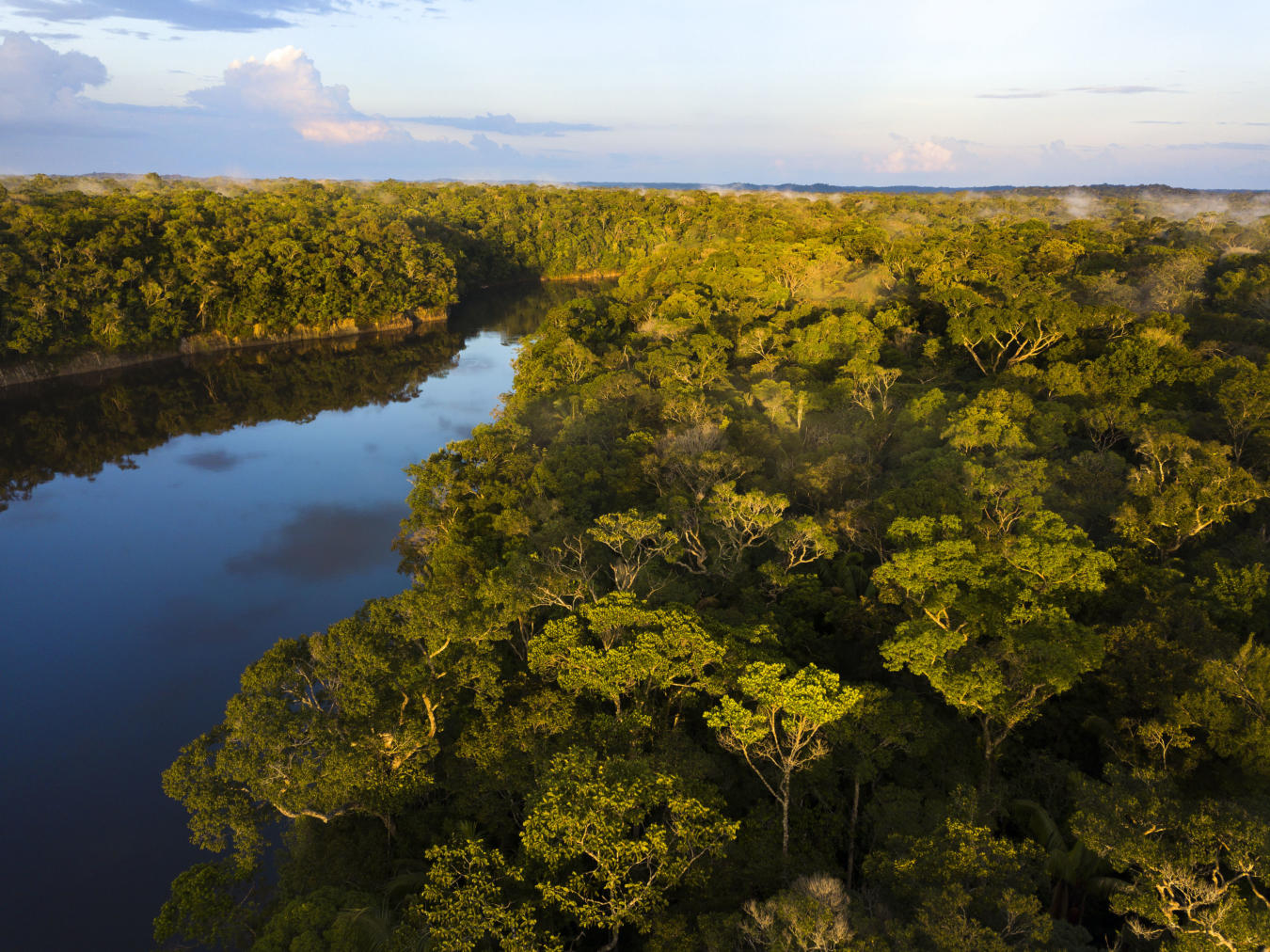
“Violence against environmental leaders in the Colombian Amazon has to stop”
Esperanza Leal, FZS Colombia Project Leader who contributed to creating the report, shares the dangers she and her team face as environmental defenders, but also why those dangers are not deterring them from their mission to continue protecting Chiribiquete National Park.
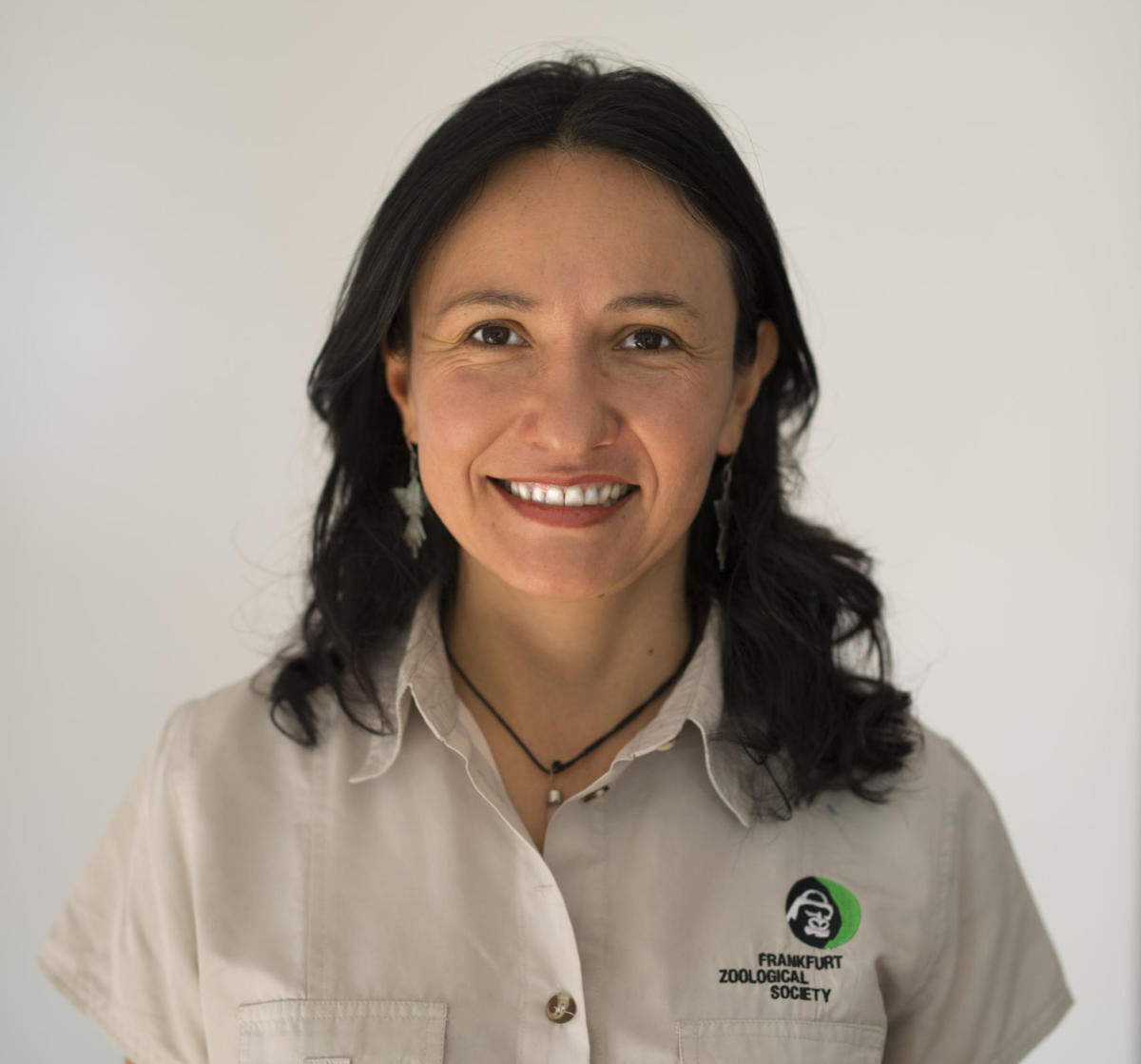
Esperanza Leal: It is not a secret that the Colombian Amazon is in a state of crisis rooted in over 50 years of armed conflict, mismanagement and exploitation of natural resources, and deep social, economic, and political inequalities. But contrary to what was expected, the report shows that conflict and environmental degradation have increased significantly since the signing of the 2016 Peace Agreement. Especially deforestation and violence against local communities, social leaders and environmental leaders. All the while, responses from the government have been insufficient.
Esperanza Leal: After the signing of the Peace Agreement, illegal armed groups, private entities, and corrupt officials used the power vacuum left in some areas to expand their power and illegal economic activities. As a result, the magnitude, intensity, and speed of resource exploitation have increased. Local communities, non-governmental organizations, and state institutions trying to protect the Amazon came into conflict with the interests of these powerful groups and have, as a consequence, increasingly become targets.
Esperanza Leal: At the end of 2019, when the security situation started affecting our field work, we called the most important allies that may have been facing the same issues, to start a working group that would map out the problems and learn more about what we were facing. We all remembered the conflicts that took place before the signing of the Peace Agreement, but it was clear that this issue was another level of complexity. Six NGOs and the Amazonian regional Office of National Parks started this process and found that we required external analysis to record all the complexity we were finding. For that reason, we contacted think tank and public policy consultancy Adelphi and FIP (Ideas for Peace Foundation) to write the report, in part to understand the complexity, but also to plan how we can start reacting to the crisis.
Esperanza Leal: We want the report to be a call to action that will reach the current government, candidates for the next presidential elections taking place in 2022, embassies, financing governments as well as international agencies. The most important goals for us now are to determine how that vicious circle began, the impact the violence has on increasing the degradation of the Amazon rainforest, how that has amplified global climate change, and how that degradation has increased the threats to environmental defenders.
Esperanza Leal: We want to show the international community the complexity of the crisis in the Amazon so that we all can develop new mechanisms of cooperation, support, and monitoring to stop this crisis. The violence must be stopped if we are to achieve global climate goals and to protect environmental defenders (government agencies, local communities, NGOs workers, etc).
Esperanza Leal: The climate crisis and global loss of biodiversity need us, the indigenous communities that defend their land, national park workers, other NGOs, financing agencies, everyone needs to keep working in the field so that we all can keep protecting the Amazon. That is why we consider this report so important. The information within can help us know the reality of the situation we are facing so that we can face it together.
Thank you Esperanza for your time!
This press release details the report further.
The study was conducted by the Colombian non-governmental organization Ideas for Peace Foundation (FIP) and the think tank Adelphi. It was made by the initiative of the following environmental organizations, who also participated closely in its implementation: World Wide Fund for Nature (WWF) Colombia, Foundation for Conservation and Sustainable Development (FCDS), Frankfurt Zoological Society (FZS) Colombia, Conservation Team (ACT), Fundación Gaia Amazonas (Gaia) Tropenbos, and the Amazon Territorial Directorate of National Natural Parks of Colombia.
The analysis is based on a comprehensive review of the available academic literature, civil society reports and official documents, as well as 59 virtual and face-to-face interviews, carried out during three trips to La Macarena (Meta), San José del Guaviare (Guaviare) and Mocoa (Putumayo) in February, March, and April 2021. Additionally, the group of organizations that commissioned the report actively participated in defining the scope and focus, and provided regular input and comments throughout the investigative process.
The analysis period ranges from 2016, when the Peace Agreement was signed, to now, 2021. The study territory is the Colombian Amazon region, which includes the departments of Amazonas, Caquetá, Guainía, Guaviare, Putumayo and Vaupés; and part of the departments of Vichada, Meta, Cauca and Nariño.
- Violence against environmental defenders and deforestation rates have reached levels not seen before the signing of the Peace Agreement in 2016.
- Indigenous communities in the Colombian Amazon are losing their lands and livelihoods, and are subject to violence and displacement.
- The crisis in the Colombian Amazon is driven by the dynamics of the markets for legal commodities and illegal drugs worldwide.
- The COVID-19 pandemic has further increased the crisis in the Colombian Amazon. It has allowed illegal armed groups to expand their control.
The production of coca for illicit uses has resulted in an increase of 177% in the deforestation rate when comparing the period of 2013-2015 with the period after the signing of the Peace Agreement, between 2016 and 2018. Additionally, FCDS reported that Between 2018 and 2019, more than 700 kilometers of new roads were opened in areas of the deforestation arc of the Amazon.
The Colombian State has responded in various ways to the increase in insecurity and deforestation in the Amazon, but insufficiently. The measures taken to protect environmental defenders have not prevented assassinations and threats; and military and security operations undertaken to curb deforestation have failed to weaken the networks that drive insecurity and environmental degradation.
The Amazon plays a key role in regulating the global climate, so the longer the crisis continues in this region, the greater the impacts on climate change and the further it undermines human security. This includes alterations in the water cycle, rising temperatures and more extreme weather events; but it will also weaken ecosystems, institutions, leaderships, and communities.
- Improve the protection of environmental defenders and local communities, by coordinating local, departmental, national and international actions.
- Address deforestation and illegal activities as part of a broader peace strategy.
- Strengthen the implementation of environmental and climate policies, taking into account their peace and conflict dimension.
- Recognize and strengthen the role of local communities in protecting the environment.
- Transform the root causes of the crisis and build long-term resilience to climate change and conflict.







